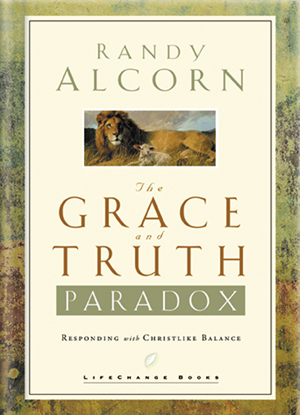
Webster's dictionary describes a paradox as "a statement that is seemingly contradictory or opposed to common sense and yet is perhaps true"
The concept of boldly proclaiming truth all the while being gracious with those who reject it seems to fit that definition precisely.
Walk the path of following Christ for any length of time and you will experience the tension of the Grace and Truth Paradox. Try to share the Gospel with an unbeliever or confront your believing friend about an unrepentant sin and you will feel the tug to either sugarcoat the truth or harshly hurl it down from your thundercloud. Whole denominations and sub-denominations of Christianity have resulted from this tension and a failure to maintain Biblical balance. But this is not a balance of 50/50 but 100/100. Grace and Truth are not in competition with each other, but Biblically speaking, are in fact mutually dependent.
When we look at Christ we see Grace and Truth perfectly and harmoniously embodied (John 1:14,17). In this short book Randy Alcorn explores some of the reasons why we so easily fail to maintain and show grace and truth simultationeously, warns us of the fallout caused by sacrificing one for the other, and points us to Jesus as the source, motivation, and power for faithfully living out both.
Alcorn has a way of making difficult concepts palatable, especially through real life examples of how the grace and truth paradox has played out in his own life. I found myself convicted and encouraged many times while reading this.
I trust you will as well.





 In preparation for our first trip to Indonesia, our team read and discussed this book. We didn't know how helpful it was until we got there, but now that we have gone and returned I am grateful for this small little book and would recommend the series for wherever you travel to next. It covers what you would expect from this kind of book: history, culture, religion, and travel tips.
In preparation for our first trip to Indonesia, our team read and discussed this book. We didn't know how helpful it was until we got there, but now that we have gone and returned I am grateful for this small little book and would recommend the series for wherever you travel to next. It covers what you would expect from this kind of book: history, culture, religion, and travel tips.